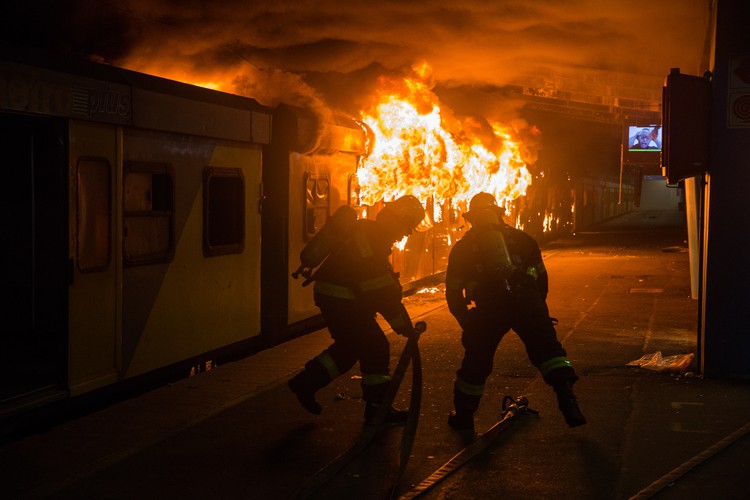GROUNDVIEW: Cyril Ramaphosa wants to fix PRASA. Here’s what he needs to do
Metrorail broke down because of state capture
President Cyril Ramaphosa got a taste of what South African commuters regularly experience on Monday. South Africans watched video clips showing him stuck on a Pretoria Metrorail train for several hours. “We are going to take steps to fix the situation,” promised the president in a video shot by ENCA.
The breakdown of commuter train services across the country is a direct consequence of the massive looting of the Passenger Rail Agency of South Africa (PRASA) by past CEOs and boards, especially Lucky Montana. It epitomised state capture.
The media has reported this grand-scale theft extensively, as well as the daily difficulties that commuters experience (see, for example, our coverage of the #PRASALeaks). Activist groups like #UniteBehind, the Rail Commuters Action Group and Public Transport Voice have for years been drawing attention to the collapse of Metrorail.
It is good that PRASA is now on the president’s agenda. But fixing PRASA will not be easy. Morale is low and many corrupt officials remain in or close to the parastatal, still looking for opportunities to suck it dry. Numerous carriages have been burnt. There have been six interim or acting CEOs in the last three years, including the current one. Here is what commuter activists say the president and his cabinet need to do to fix the trains:
- Declare a disaster and appoint a disaster management team to assist the PRASA board and management.
- Appoint a top-quality permanent board which appoints permanent staff, based on merit and experience.
- Urge the board to extend rail tickets for commuters by a month to acknowledge that they have been unfairly treated and to encourage them to return to using the trains.
There will also need to be further prosecutions of the people who destroyed PRASA.
Support independent journalism
Donate using Payfast

Next: Protesters extort cash and goods from immigrant shopkeepers
Previous: Lottery has to do more with less
© 2019 GroundUp.
This article is licensed under a Creative Commons Attribution-NoDerivatives 4.0 International License.
You may republish this article, so long as you credit the authors and GroundUp, and do not change the text. Please include a link back to the original article.

